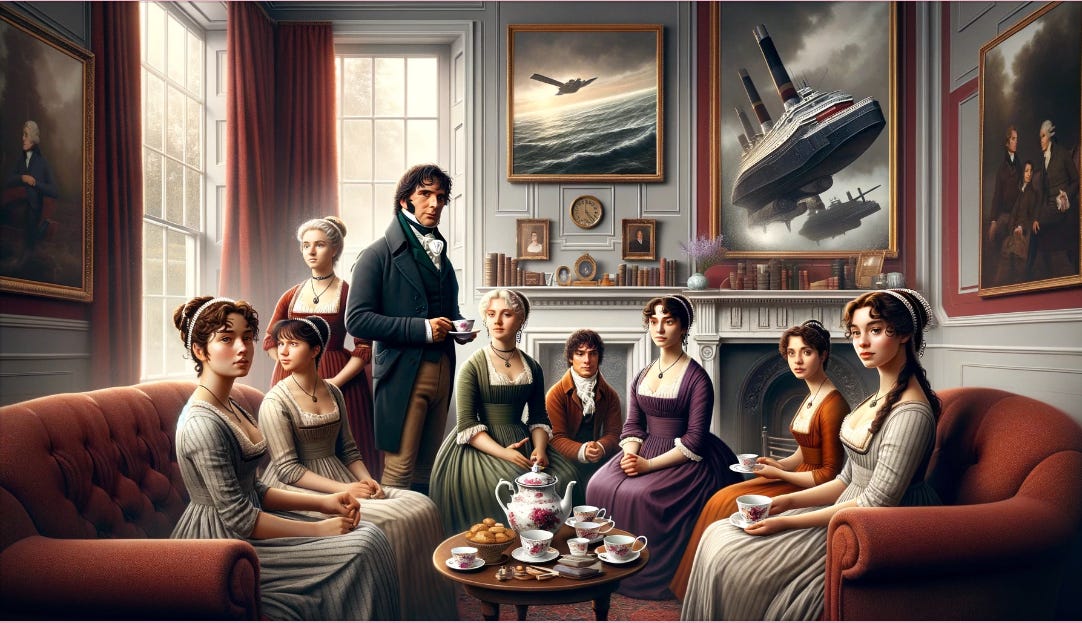Why Is There No Jacquerie in "Pride & Prejudice"?
One would think that the situation of Mr. Bennet, Mr. Darcy, & Lizzie Bennet in Pride & Prejudice would end with them like their French counterparts half a generation before—them fleeing the merciless agents of some Committee on Public Safety with their clothes on their back & whatever silver eating implements they can stuff in their undergarments, hoping for some Scarlet Pimpernel-like figure to come to their rescue. But no!…
While stuck in traffic on the Octavia Street offramp in San Francisco, we were talking about how it possibly could have been that Mr. Bennet, father of heroine Lizzie Bennet in Jane Austen’s Novel Pride and Prejudice, could be so wealthy and maintain his wealth.
Mr. Bennet, of course, is the early-1800s proprietor of Longbourne, an estate (they don’t seem to call it a manor) near Meryton, in southern England. I have always thought of Longbourne and Meryton as being located somewhere in or near Hertfordshire—say, in the quadrangle running from St. Albans to Bishop’s Stortford to Biggleswade to Leighton Buzzard.
He is a rich man.
Consider four monetary amounts £2,000, £20, £13, and £5:
Mr. Bennet: £2,000/year
Agricultural worker: £20/year
Allen & al. family “respectability” basket: £13/year
Allen & al. family “subsistence” basket: £5/year
£2,000 is the annual income that Mr, Bennet derives from his estate of Longbourne back in 1810.
£20 is the annual income that a not-rich agricultural worker takes home to his family, including in-king income.
£13 is the reckoning Robert Allen make of the annual cost of the “respectability basket” of consumption commodities—people who are not at the edge of starvation, but whose living standard is still modest.
And £5 is the estimate of the annual cost of the “subsistence basket” of consumption commodities—that at which people are at the edge of being very hungry, wet, and cold much of the time.
There is a peculiar fact here: Mr. Bennet is in a very weird position, relative to either his feudal predecessors of six-hundred years before or his semi-feudal predecessors of three-hundred years ago, or relative to his successors of today.

